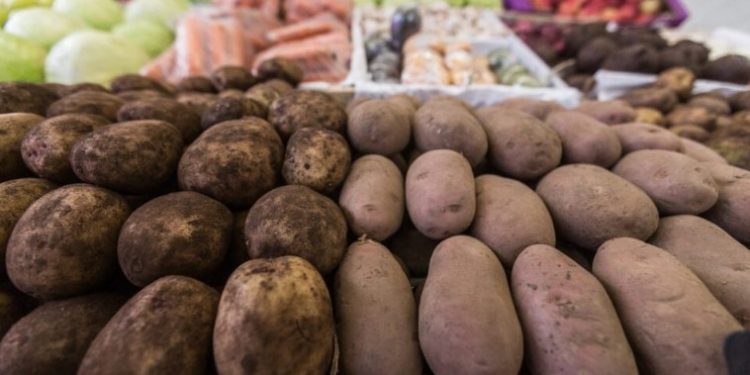The once-humble potato has become a source of unexpected turmoil in Kazakhstan. Prices have skyrocketed in recent weeks, sending shockwaves through the market. The Ministry of Trade and Integration, sensing a brewing crisis, has launched a full-scale investigation, scrutinizing every link in the potato supply chain.
Regional commissions, like vigilant watchdogs, have been deployed across the country. They have unearthed a disturbing pattern: unscrupulous traders, driven by greed, have been egregiously exceeding the permitted 15% markup on potato prices. These profiteers, caught in the act of price gouging, now face the consequences of their actions as the government cracks down with administrative penalties.
While the situation remains tense, signs of relief are emerging. In the bustling capital of Astana, a glimmer of hope shines through as retail chains report a modest decline in potato prices. Prices now fluctuate between a more palatable 185 and 280 tenge per kilogram (€0.38 to €0.58), offering some respite to weary consumers. The nationwide average price, though still elevated, has settled at 322 tenge per kilogram (€0.66). The government, cognizant of the plight of its citizens, has reassured the public that social stores remain a lifeline, offering potatoes at prices significantly below the prevailing market rates.
However, the potato price crisis presents a diverse landscape across the vast Kazakh nation. In Aktobe, a chilling tale unfolded: prices plummeted to an alluring 200 tenge per kilogram (€0.41) in early January, only to double within a week. The reason for this dramatic reversal? A significant portion of the potato harvest had succumbed to damage, leaving a trail of disappointment and frustration in its wake.
In contrast, the picture in Zhetysu, a region renowned for its potato cultivation, is less bleak, though far from idyllic. Prices have soared to dizzying heights, exceeding 400 tenge per kilogram (€0.82). Yet, amidst the price surge, a silver lining emerges: the quality of potatoes in Zhetysu is generally superior, offering consumers a degree of consolation.
The price fluctuations are not confined to these regions. In Pavlodar, local potatoes are now commanding a hefty 400 tenge per kilogram in bustling markets. Meanwhile, in the distant Kyzylorda region, potatoes sourced from Pavlodar are being sold at a slightly more affordable 360 tenge per kilogram (€0.74).
Despite the current turmoil, it’s crucial to remember that Kazakhstan possesses the potential to weather this storm. The nation’s potato production in 2024 was a bountiful harvest, reaching a staggering 2.9 million tons, comfortably surpassing the country’s annual consumption needs of 2 million tons. This abundance underscores the fact that the current crisis is not a reflection of scarcity but rather a consequence of market distortions and the actions of unscrupulous traders.
The government, armed with this knowledge, must now redouble its efforts to streamline distribution channels, curb market manipulation, and ensure that this essential food staple remains accessible and affordable for all Kazakh citizens.







